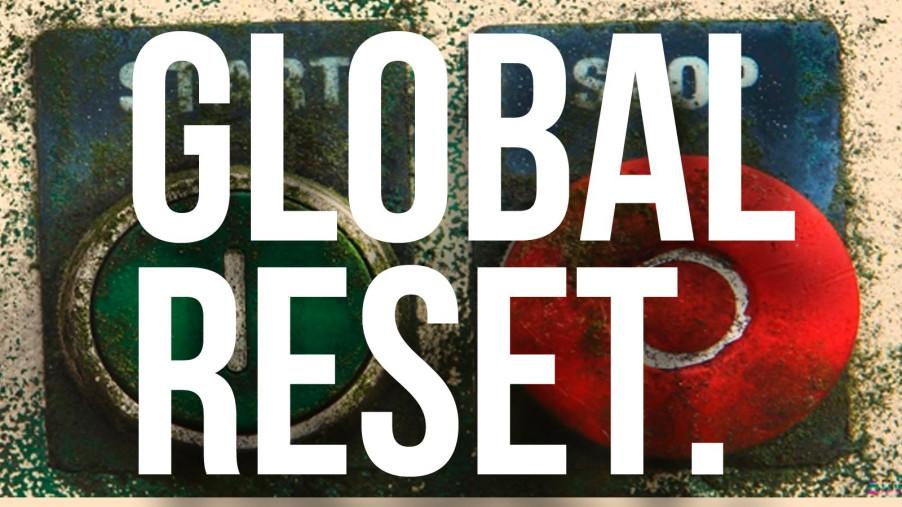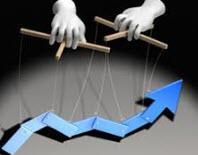Based on how Japan has fared over the last several decades it is difficult to see the green shoots of a global economic spring forth as a result of lower interest rates.
In fact, the next economic downturn will likely envelope the planet and may last forever and a day. This is because central bank intervention and manipulation often carries with it negative unintended consequences. People often forget how lucky Japan has been during its trying times to be located next to China. Because of China's years of booming growth, Japan has been able to mitigate much of the pain that occurred when its economic bubble burst in 1992.
In the decades since, Japan's stock market has never again come near the lofty peak it hit back then. During the years after Japan's fall from grace, it was able to soften the impact of its economic problems by strengthening ties with rapidly growing China which needed help in developing its export-driven economy. Today many people feel the global economy is in a bubble eerily similar to the one experienced by Japan before its implosion. The question is not whether the market and economy are about to undergo a massive reset but when. Concern is also growing as to how deep, painful, and long the next downturn will last.

A huge factor in the world trudging forward following 2008 is the massive growth in the money supply and debt over the last several decades. This growth in debt and credit has exploded making the financial sector a far bigger part of our economy than it should be. The economy has become more about asset values than solid growth in production, this has added to inequality and this does not create a healthy environment for investors. Much of this trend has been predicated on central banks continuing to move interest rates lower and lower. While rate cuts may temporarily mask economic weakness or halt declining asset prices they come at a price, this can be seen in the way they destroy true price discovery.
Following the financial crisis of 2008, governments and bankers have joined together to form the "Financial-Political Complex." Years ago President Eisenhower warned the American people about the Industrial Military Complex, but nobody warned us of this new threat. Instead, we were told to embrace the closer ties between the bankers and government officials as a good thing. While this evil alliance halted and reversed the carnage taking place in the stock markets it did little to solve the core issues we faced, in fact, by allowing the government to ignore and avoid necessary reforms it has made them far worse.
We have dodged many economic challenges since 2008 as the so-called economic recovery grew long in the tooth. Time after time, the creative folks that make up the Financial-Political Complex have been able to pull rabbits out of their hats and manipulates asset prices ever higher.

This has extended the illusion that all is well. Today, they are faced with a new challenge, the coronavirus, it has battered markets as it spreads across the globe. This monster has halted travel, put hundreds of millions of people into weeks of lock-down quarantines, disrupted supply chains, and respects no borders.
The economic impact of this event cannot be simply brushed aside or denied. Because it strikes at the very heart of the economy it cannot be easily fixed by lowering interest rates. It attacks both supply and demand as well as production and productivity. It will also hit hard the small businesses that form the backbone of our communities and make things work. While large companies can get loans and money from Wall Street and banks, small business is often shunned by both as an area where it is difficult to make a profit. Most small businesses with just a few workers do not have the financial resources to suffer through weeks or months where employees don't work and they have no income. In most cases, their bills will continue to roll in and this means many will be forced to close.
On Monday the Financial-Political Complex again defied the markets will by thwarting its effort to correct. The BOJ which already owns 80% of all outstanding ETF's bought a record 101 billion yen of ETFs to stabilize the market. China's PBOC also jumped in with promises of support and so did the IMF. This was followed by Kudlow and Mnuchin calling for Fed Chairman Jay Powell to do what Trump wants, which is to rapidly lower interest rates. Near the end of the day, Trump was able to shore up the markets by voicing an optimistic tone about progress on vaccines and treatments. All this resulted in the Dow finishing the day a massive 1,850 points off its overnight lows.
The problem is that for a decade the actions of the Financial-Political Complex have destroyed true price discovery and increased inequality. Their policies have rewarded the same group of people, banks, and institutions that created many of our financial problems.
It is time they face reality and admit they are on the wrong path. The argument all this has been done for the greater good is beginning to fall on deaf ears as confidence in the financial system weakens. This can be seen in the Sanders for President movement, a growing number of voters have joined Sanders in demanding change, when he calls for a revolution they hear him, and say yes.
Commenti
Posta un commento